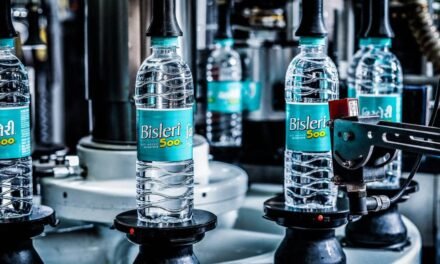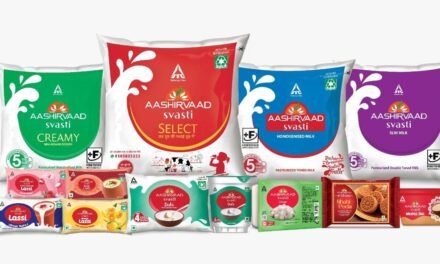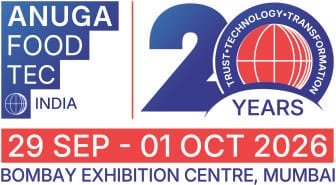Nepal recently banned spices from the renowned MDH and Everest brands due to concerns over ethylene oxide, a harmful chemical. This decision follows similar actions taken by Hong Kong and Singapore.
Nepal has become the latest country to ban spices from the MDH and Everest brands following complaints of ethylene oxide. According to news agency ANI, Nepal’s Department of Food Technology and Quality Control has begun testing the two Indian spice brands and has prohibited their import, consumption, and sale.
“Everest and MDH brand spices being imported in Nepal have been banned from import. It comes after the news about traces of harmful chemicals in the spices, ban on import was imposed a week earlier and we also have banned the sales of it in the market,” Mohan Krishna Maharjan, spokesperson of Nepal’s Department of Food Technology and Quality Control told ANI.
It comes just days after Hong Kong and Singapore banned spices from the same two brands. The government of the Hong Kong Special Administrative Region’s Centre for Food Safety had collected samples of three of MDH’s pre-packaged spice products – ‘Madras Curry Powder’, ‘Sambhar Masala Powder’, and ‘Curry Powder’, as well as Everest Group’s ‘Fish Curry Masala’ – for testing as part of its routine food surveillance programme when it discovered the presence of the pesticide.
In Singapore, the food regulator also discovered carcinogenic chemicals in both companies’ goods, prompting regulators to instruct the importer of the two spice brands to start a product recall. Ethylene oxide is inappropriate for human ingestion and, with prolonged exposure, can cause cancer.
Australia placed MDH, Everest spice on the watch list
Food Standards Australia New Zealand (FSANZ) stated recently that it is investigating contamination claims concerning spice mixes manufactured by Indian companies MDH and Everest. This may result in a recall of these products in Australia, after similar moves in Hong Kong and Singapore.
Hong Kong recently stopped the sale of three MDH spice mixes and one Everest mix designed for fish curry. Singapore also issued a recall for the Everest mix, citing high quantities of ethylene oxide, a chemical that has been linked to cancer when exposed for an extended period of time.
“We are working with international counterparts to understand the issue and with federal, state, and territory food enforcement agencies to determine if further action is required in Australia,” FSANZ said in a statement. The agency said that “ethylene oxide is not permitted to be used as a treatment for foods sold in Australia.” Potential further action could include a recall of affected products.
Both MDH and Everest, prominent spice brands in India, have a significant presence in Europe, Asia, and North America.
The United States Food and Drug Administration (FDA) is also investigating the matter, while Indian authorities recently conducted inspections at the production facilities of both MDH and Everest.
The rising scrutiny on these spice brands reflects growing concerns over food safety standards and international regulatory responses to potential health risks. As the investigation continues, Australian consumers are advised to stay informed about possible recalls and ensure the safety of their food purchases.
The Spices Board of India recently said that it had sought data on MDH and Everest exports from relevant authorities in Hong Kong and Singapore and was working with the companies to find the “root cause” of the issue as inspections started at plants.
“Thorough inspections at exporter facilities are also underway to ensure adherence with regulatory standards. … The Board is in touch with Indian missions in Singapore and Hong Kong to get more information,” it said in a statement.
The Spices Board added it was starting mandatory testing for ethylene oxide in spice consignments to Singapore and Hong Kong, while shipments to other countries would also be strictly monitored for the contaminant.
MDH denies pesticide claims, assures safety of products
In a statement, MDH said it has not received any communications from Hong Kong and Singapore food safety regulators.
In reference to the alleged presence of ETO (ethylene oxide) in some of its products, MDH said that “these claims are untrue and lack any substantiating evidence”.
“Additionally, we would like to assert that MDH has not received any communication from regulatory authorities of Singapore or Hong Kong.”
MDH stated that the Spice Board of India and food regulator FSSAI have not received any communication or test reports from Hong Kong or Singapore authorities regarding this matter.
“We reassure our buyers and consumers that we do not use Ethylene Oxide (ETO) at any stage of storing, processing, or packing our spices,” the statement said.
Distributors to continue sale of MDH and Everest Masala
Meanwhile, the All India Consumer Products Distributors Federation (AICPDF) advised its members to stay updated with FSSAI guidelines regarding the sale of MDH and Everest masale products. As no restrictions have been imposed by FSSAI, the federation sees no reason for retailers to stop selling these products until any official concerns or restrictions are raised.
“As an association, we understand the concern regarding the sale of these products, especially for our distributor members who supply kirana stores. However, since there are no restrictions imposed by FSSAI, we do not see any reason for retailers to stop selling MDH and Everest masale products. We believe that until FSSAI raises any concerns or restrictions, it is safe for kirana store owners to continue selling these products”, the statement reads. o

















